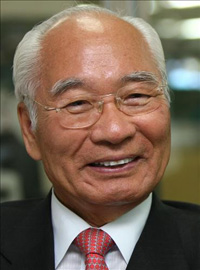- California Assembly OKs highest minimum wage in nation
- S. Korea unveils first graphic cigarette warnings
- US joins with South Korea, Japan in bid to deter North Korea
- LPGA golfer Chun In-gee finally back in action
- S. Korea won’t be top seed in final World Cup qualification round
- US men’s soccer misses 2nd straight Olympics
- US back on track in qualifying with 4-0 win over Guatemala
- High-intensity workout injuries spawn cottage industry
- CDC expands range of Zika mosquitoes into parts of Northeast
- Who knew? ‘The Walking Dead’ is helping families connect
Restoring synapses to cure alzheimer’s
Memories have long been remnants of the past, seemingly evaporating out of the human mind, especially for those suffering from Alzheimer’s disease.
However, this may soon be subject to change as well, as a new UCLA study on memory digs deeper into where memory is kept and whether lost memories can be restored.
The study started with Glanzman’s team simply observing the long-termmotor memory of a marine snail called Aplysia. The Apylsia possesses a withdrawal reflex that protects its gill from potential harm.
Researchers strengthened the Aplysia’s withdrawal reflex by stimulating it with a series of electrical shocks. After the shocks, they performed a number of experiments with a protein synthesis inhibitor to find out nothing surprising: Long-term memory was not affected by protein synthesis inhibitors – in fact, the protein synthesis inhibitors only showed their effects when synaptic growth was occurring.
Next, the team experimented with the number of disappeared synapses, after the use of a protein synthesis inhibitor. Although the prevailing wisdom of neurology states that memory is stored in the synapses, this was proven wrong, as there was no pattern in which synapses grew and disappeared after the addition of protein synthesis inhibitors, proving that memory was not stored in the synapses.
David Glanzman, the UCLA professor of integrative biology and physiology, and of neurobiology, concluded, “The nervous system appears to be able to regenerate lost synaptic connections. If you can restore the synaptic connections, the memory will come back.”
Although David Glanzman assumes memory is stored in the nucleus of the neurons, it has not been proven yet.
The implications of this study have hopeful implications for Alzheimer’s patients, as synapses gaps can be rebuilt to possibly restore their memories. Although there are still some qualms as to whether restoring synapses will actually help patients remember their past, it is a large step forward to curing the disease.
 |
Matthew Cho YISS High School 9th Grade |










![일본 사도광산 [서경덕 교수 제공. 재판매 및 DB 금지]](http://www.koreatimesus.com/wp-content/uploads/2024/07/PYH2024072610800050400_P4-copy-120x134.jpg)



kelly
November 27, 2017 at 1:33 PM
yes..I like the basic concepts behind Second Life but it seems incredibly outdated and when I played it was intensely non-intuitive / user friendly to an extent that made EVE look like a game for toddlers. thanks from
togel online